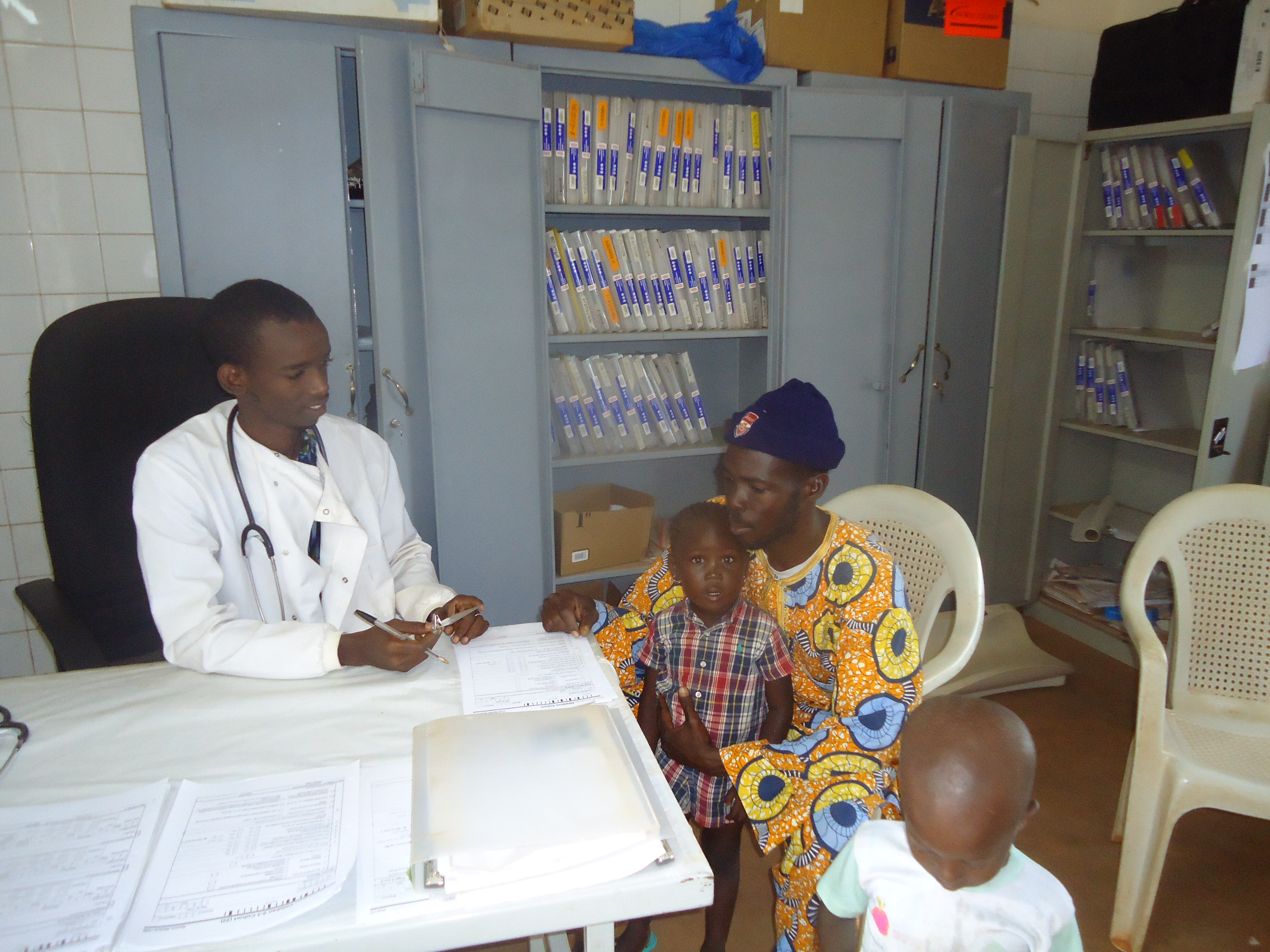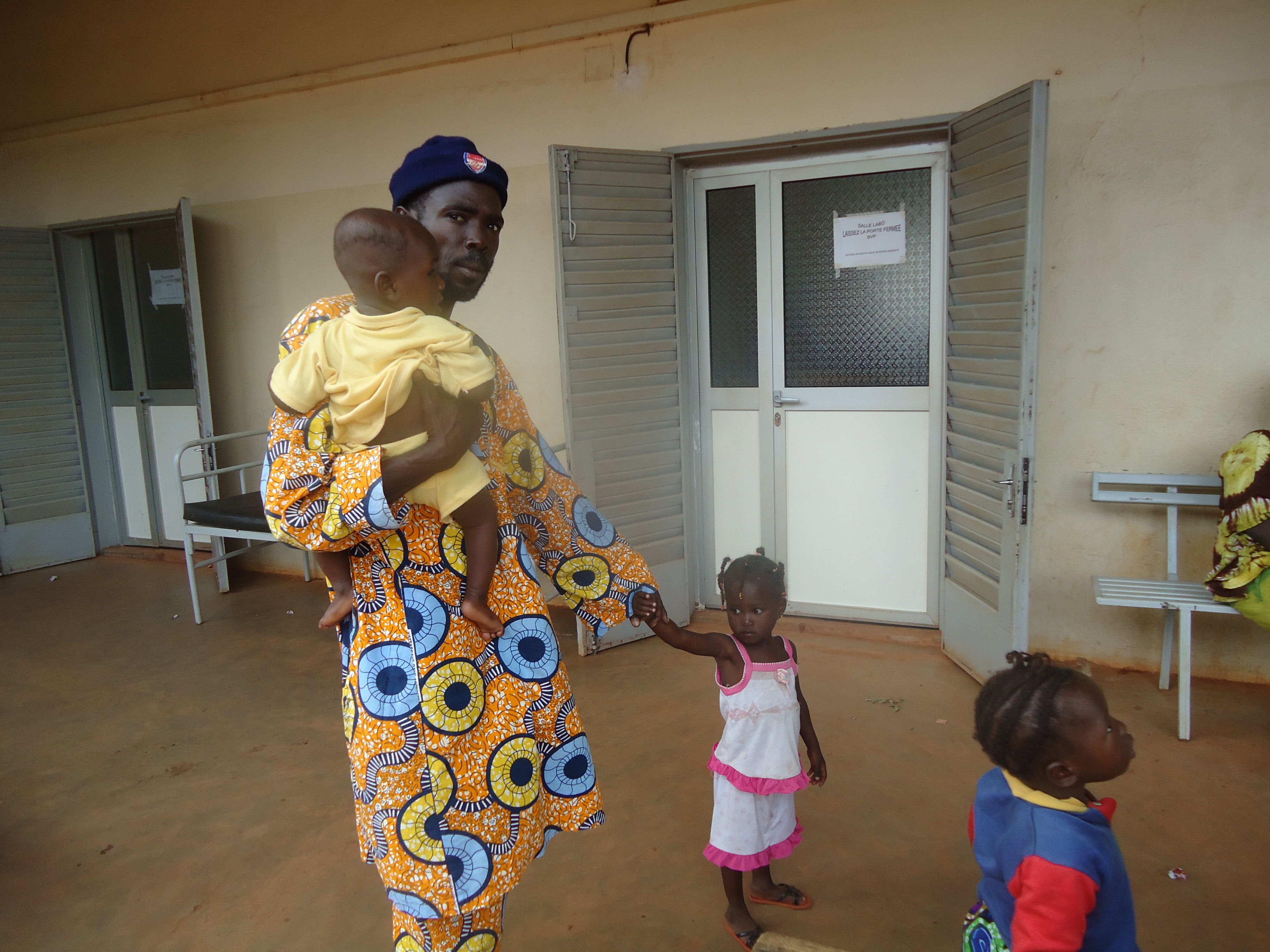|
PARTNERSHIPS FOR ENHANCED ENGAGEMENT IN RESEARCH (PEER) HEALTH
Cycle 1
Principal Investigator: Alassane Dicko, University of Bamako
NIH-Supported Collaborator: Patrick Duffy, National Institute of Allergy and Infectious Disease (NIAID)
Title of NIH Award: Malaria Immunology and Pathogenesis in Pregnant Women and Young Children
Project Dates: February 2014 - April 2019
Project Overview
Malaria is the leading cause of morbidity and mortality in Mali. Despite effective implementation of usual control measures such as insecticide treated nets (ITN) and artemisinin combination therapy (ACT) malaria remains the number one killer in Mali. We recently showed that Seasonal Malaria Chemoprevention (SMC), previously known as Intermittent Preventive Treatment of Malaria in children, reduces malaria infection and disease by more 80% in Malian children, prompting the WHO to approve SMC as policy for countries with seasonal malaria transmission, such as Mali, in March 2012. The strategy is a highly cost-effective approach to reduce childhood mortality in these areas. Despite the huge benefit of the SMC on malaria infection and disease, the optimal approach to deliver SMC remains to be determined and there is no data on the long term effect of this strategy on the development of immunity to malaria. An optimal SMC delivery approach will make a substantial contribution toward the achievement of the goals of the US President’s Malaria Initiative (PMI) and the Millenium Development Goals. The objectives of the study are to identify the most effective method to deliver SMC, and to obtain information on the long term impact of SMC on malaria immunity. The design is a cluster-randomized trial over three years. By using a step-wedge design, the investigators aim to i) determine the optimal mode (fixed-point (FPD) vs door-to-door delivery (DDD); directly observed treatment (DOT) vs. non-DOT (NDOT)) and frequency (3 vs. 4 doses per season) of SMC delivery; ii) to compare quantitative measures of immunity in children who do and do not receive SMC over a three year period. The anticipated outcome of the study will be a qualified optimal approach to deliver SMC in Mali, and an expanded understanding of its impact on health outcomes and antimalarial immunity. The results will be shared with stakeholders, and will be used at the end of each year to guide the implementation of SMC in Mali.
 |  |
Final Summary of Project Activities
The key objectives of the project were all achieved. These include:
- Determination of the optimal delivery method for SMC: The study demonstrated that door-to-door delivery method resulted in higher coverage compared to fixed-point delivery. Consequently, the government changed the SMC delivery method, leading to increased coverage and better protection against malaria. The findings will be published in PloS One.
- Assessment of the long-term impact of SMC on malaria immunity: Research showed that administering antimalarials through SMC for 3 or 4 years did not decrease IgG levels to key malaria antigens. These results will be published in Malaria J with additional findings in preparation.
- Assessment of the long-term impact of SMC on resistance to P. falciparum: Molecular analysis indicated that 2-3 years of SMC did not increase the frequency of molecular markers associated with resistance to SMC drugs. However, the detection of the dhps 581G mutation warrants further surveillance.
These findings were presented at national and international meetings, influencing policy discussions on malaria control strategies.
Publications
Amadou Barry, Djibrilla Issiaka, Tiangoua Traore, Almahamoudou Mahamar, Bacary Soumana Diarra, Issaka Sagara, Diakalia Kone, Ogobara K. Doumbo, Patrick Duffy, Michal Fried, and Alassane Dicko. 2018. Optimal mode for delivery of seasonal malaria chemoprevention in Ouelessebougou, Mali: A cluster randomized trial. PLoS ONE 13(3): e0193296. https://doi.org/10.1371/journal.pone.0193296
Almahamoudou Mahamar, Djibrilla Issiaka, Amadou Barry, Oumar Attaher, Adama B. Dembele, Tiangoua Traore, Adama Sissoko, Sekouba Keita, Bacary Soumana Diarra, David L. Narum, Patrick E. Duffy, Alassane Dicko, and Michal Fried. 2017. Effect of seasonal malaria chemoprevention on the acquisition of antibodies to Plasmodium falciparum antigens in Ouelessebougou, Mali. Malar J (2017) 16:289. https://doi.org/10.1186/s12936-017-1935-4
Brian Greenwood Alassane Dicko, Issaka Sagara, Issaka Zongo, Halidou Tinto, Matthew Cairns, Irene Kuepfer, Paul Milligan, Jean‑Bosco Ouedraogo, Ogobara Doumbo, and Daniel Chandramohan. Seasonal vaccination against malaria: a potential use for an imperfect malaria vaccine. Malar J 16:182. https://doi.org/10.1186/s12936-017-1841-9
|





